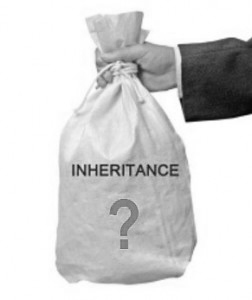
Same Sex Marriage – How Does This Affect My Will?
With the recent amendments to the Marriage Act 1961 (Cth) which see same sex marriage legalised in Australia, it is an opportune time for same sex couples to review and update their Wills or make a Will if they do not already have one in place.
In Western Australia, sections 14 and 14A of the Wills Act 1970 (WA) provide that:
- marriage revokes your Will
2. a divorce order or annulment granted after 9 February 2008 revokes your Will. Unless your Will is specifically drafted in contemplation of that marriage or divorce.
As the law in Australia has not until very recently recognised same sex marriage, it is unlikely same sex couples will have had their Wills drafted in contemplation of marriage and the recent legislative change may therefore see couples’ Wills being inadvertently revoked.
It is very important that same sex couples who are planning to marry in the future (and other couples planning to marry) update their Wills to include an express clause which states that their Will is made in contemplation of marriage. If drafted correctly, this will prevent the Will being revoked (rendered invalid) upon the marriage.
The recent legislative amendments also mean that same sex couples who have been married overseas are now recognised as married in Australia. If you have had your union solemnised overseas, it is important to revisit your estate planning as your existing Will may be revoked by virtue of the recognition of your marriage according to Australian law.
If you die without a Will or without a valid Will, your estate will pass according to the relevant laws of intestacy (in Western Australia, section 14 of the Administration Act 1903 (WA) applies). This effectively removes a Will-maker’s freedom to decide who is to benefit from their estate upon their death and often makes the administration of the estate more complex and inevitably more expensive.
For more information or assistance in making or updating your Will, please contact the Estate Planning team at Culshaw Miller Lawyers.

Family Law : Can I Travel Overseas With The Children?
Want to travel with the children overseas? If you have or are seeking parenting orders however, you might want to double-check a few things before making any plans, otherwise you could find yourself potentially facing a criminal charge. Section 65Y of the Family Law Act 1975 makes it an offence to take or send a child from Australia if that child is subject to a parenting order dealing with:
- where a child lives;
- when a child spends time with a person;
- when a child communicates with a person; or
- when a person has parental responsibility for a child.
Similarly, section 65Z of the Act makes it an offence to take or send a child from Australia if there are proceedings before the Court for the making of a parenting order of the sort referred to above.
There are exceptions however, as the Act allows a child to be taken from Australia overseas in the circumstances outlined above, so long as it is done with:
- the express written consent of each party; or
- a Court Order providing for the overseas travel has been made.
It is crucial then that, if you have a parenting order or are a party to Court proceedings for a parenting order, any international travel involving a child subject to that order or those proceedings must not take place unless you have satisfied one of the above conditions.
If either of these requirements is not satisfied then you could be charged with committing an offence. The penalty can be imprisonment for up to 3 years.
It is important that any final parenting orders therefore contemplate whether or not any provisions need to be made for international travel of a child or children. These provisions can include (but are not limited to) addressing issues such as whether all parties must consent to such travel, how much notice the travelling party needs to provide the other and how children’s passports are to be handled.
It is possible to have a final parenting order that a child lives only with one party who has sole parental responsibility for that child, but unless that parenting order contains an order permitting that party to also arrange the international travel of the child without reference to the other party then section 65Y operates to still require both parties to consent to international travel of the child. This highlights the importance of having properly drafted orders, and receiving Family Law advice.
Contact the family lawyers at Culshaw Miller in Perth or Adelaide today for more information.
Perth: (08) 9488 1300 or email
Adelaide: (08) 8464 0033 or email

Family Law : An App
We sit upon the precipice of a new age whereby we are developing technology that can teach a computer to ace Super Mario World (fun) or to command an autonomous army (scary). An Australian venture is attempting to do something even scarier still, to apply data and technology to predict likely outcomes in Family Law cases. Family Law : An App.
Is this a good idea or a bad idea?
The concept appears to be that the App will analyse both hard data and matters specific to a case, and predict likely outcome based on patterns and trends or legal precedents together with what the founder of the App describes as ‘gut feelings’, or statistical unknowns.
So are family lawyers about to go the way of the dodo? Will robo-lawyer kill off the industry? Not likely. The Family Law App may be accepted by the profession as a ‘second opinion’ resource or even a tool for lawyers to reconsider their advice along the way to ensure that the lawyer’s analysis of the case is sound or there may be further considerations.
Even despite the wisdom of an App, it would be interesting to see how the App factors in Judicial Discretion, that esoteric term that basically describes the ability of a Judge to exercise their own wisdom with regard to evidence that they are hearing and make decisions while still applying the law.
Studies have been conducted that conclude that judicial discretion can lead to arbitrary, uncertain and unclear judgments without further rules being applied. Then in that case, could the App help to further crystallise those observations, identifiable trends or common findings into legal rules and perhaps legislation? It is an interesting question.
In any case, I for one will welcome our new robo-judicial overlords if I have not already been replaced by a legally admitted Rasberry Pi.
Blog post by Daniel Sampson

Culshaw Miller Lawyers News Three New Associates
Culshaw Miller Lawyers News is pleased to announce that Hayley Ellison of our Perth office has been promoted to Associate in the area of Family Law. She is an asset to the team and has worked very hard to obtain this promotion.
Similarly, Kate O’Leary of our Adelaide office has been made an Associate in Family Law. She has worked very hard and shown the team how important she is in the company.
Congratulations also to Tom Cuthbertson of our Adelaide office, whose practice covers Criminal Law and Family Law, who has been promoted to Associate of Culshaw Miller Criminal Lawyers.
Culshaw Miller Lawyers News Three New Associates. The directors and staff of Culshaw Miller join in congratulating Hayley Ellison, Kate O’Leary and Tom Cuthbertson for their hard work. Their commitment and focus to the team has got them there well-earned appointments.
Contact the family lawyers at Culshaw Miller in Perth or Adelaide today for more information.
Perth: (08) 9488 1300 or email
Adelaide: (08) 8464 0033 or email

The 60 Minutes Debacle – Applying For A Recovery Order
Blog post by Mary Basta and Sarah Nicholls
The 60 Minutes crew recently hit the news headlines after being accused of involvement in an operation to recover children from a street in Beirut in an attempt to have them reunited with their mother. It was a widely publicised debacle. Generally, the longer a child remains with the other party, the more difficult it is to successfully obtain a recovery order.
If you are faced with a situation where your child has been wrongfully taken, it is essential that you take appropriate action immediately and seek urgent legal advice.
What is a recovery order?
A recovery order is an order made by a court requiring the return of a child to a:
- parent of the child;
- person who has a parenting order that states the child lives with, spends time with or communicates with that person; or
- person who has parental responsibility for the child.
Who can apply for a recovery order?
A recover order may be applied for by:
- a person with whom the child is to live, spend time with or communicate with under a parenting order;
- a person who has parental responsibility for the child;
- a grandparent of the child; or
- any other person concerned with the care, welfare or development of the child.
How do I apply for a recovery order?
The application process for a recovery order will depend on whether or not you have proceedings currently before the court. In any event, an application to the court is required together with a supporting Affidavit which sets out the background to the matter, details of how the child was taken or not returned to you, steps you have taken to recover the child and why it is in the child’s best interest that they return to you.
What does the court consider when making a recovery order?
A court must regard the best interests of the child as the paramount consideration in deciding whether to make a recovery order. The court is required to give greater weight to the consideration of the need to protect the child from harm.
If the court decides to make a recovery order, the order will authorise or direct another person or persons to find, recover and deliver the child. A copy of the orders must be provided to that person. In most cases, this is the Australian Federal Police.
International child abduction
If your child has been taken overseas without your consent, the Hague Convention may apply.
The Hague Convention is an agreement in force between Australia and a number of other countries. It provides a framework for seeking the return of abducted children to their home country.
It is essential to seek urgent legal advice in the event that you suspect your child is at risk of being removed from the country.
Contact Culshaw Miller Lawyers for more information.

Legal Aid Matters – A National Campaign
Today saw the launch of Legal Aid Matters – a national campaign.
The message:
Australian Governments must:
- Increase the Commonwealth’s share of legal aid commission funding to 50 per cent with the States and Territories. This would amount to an additional $126 million in the 2016 Commonwealth Budget.
- Immediately provide a further $120 million to cover civil legal assistance, with the States and Territories contributing $80 million, comprising a total of $200 million, as recommended by the Productivity Commission.
- Immediately reverse further Commonwealth funding cuts to legal assistance services announced in 2014, due to take effect from July 2017. These include:
- $12.1 million in cuts to community legal centres;
- $4 million in cuts to Aboriginal and Torres Strait Islander Legal Services; and
- all cuts directed at policy and advocacy work conducted by legal assistance bodies, as recommended by the Productivity Commission.
For more information on Legal Aid Matters – A National Campaign please visit: http://legalaidmatters.org.au/.
LEGAL AID IN CRISIS AND JUSTICE IS BEING DENIED.
Most Australians assume if they get embroiled in a serious problem and can’t afford a lawyer, legal aid will be there to help. Today, they’re mostly wrong. Hundreds of millions of dollars in cuts by successive Federal Governments have pushed legal aid to the brink of collapse. Legal aid services are closing. More cuts are on the way.
Contact the family lawyers at Culshaw Miller in Perth or Adelaide today for more information.
Perth: (08) 9488 1300 or email
Adelaide: (08) 8464 0033 or email

Is Your Family Law Case Urgent? A Call To Increase Funding To Triage Family Court Cases
Blog post by Sam Lehman
Is Your Family Law Case Urgent because in news this past week, Family Court Chief Justice Diana Bryant made a call for increased funding to assist appropriate risk assessment or ‘triaging’ of matters at early stages in the Family Court and Federal Circuit Court, both of which hear matters concerning family violence and child abuse.
The Australian reports that Chief Justice Bryant has urged the government to consider a further cash injection of ‘an extra $20 million over the forward estimates’ to support the appointment of family consultants and registrars to
assist judges in the management of cases. This will reportedly allow serious allegations of family violence to be dealt with swiftly to ensure the safety of children.
Chief Justice Bryant recognises this issue:
“You don’t want to make a mistake either way. You don’t want to make orders that will provide for ongoing contact and put children at risk; on the other hand … you want to try and protect the relationship between a parent and child, especially if it’s going to take two years for a matter to be heard.”
“All of that means risk assessment is vital at the beginning.”
“We may be failing some families and children and we need to be able to do better.”
Understandably, many parents view the circumstances of their own matter as urgent however, this is a view which may not be shared by the Court which daily deals with children at serious risk.
How we can help you
Engaging a legal representative can significantly cut down on the work which must be undertaken by the Court to understand and assess the parameters of your case. A lawyer can assist you to identify the matters which are relevant to the determination of your dispute and to accurately identify to the Court which issues require the Court’s attention to Family Law Case Urgent.
A lawyer can also assist you to resolve matters without the need to file in Court or assist you to manage short term arrangements before the Court is able to hear your case.
Contact the family lawyers at Culshaw Miller in Perth or Adelaide today for more information.
Perth: (08) 9488 1300 or email
Adelaide: (08) 8464 0033 or email

The Need To Keep Your Will Current
Blog post by Ilsa Wallner
It is well established that marriage and divorce affect the operation of a person’s Will. A recent decision of the Supreme Court of Western Australia now suggests that the dissolution of a de facto relationship may have equally important consequences for Wills, making the need to keep your will current.
A Case Study: Blyth v Wilken
In Blyth v Wilken [2015] WASC 486, under the terms of his Will, Mr Scott left a sizeable portion of his estate ‘for my de facto wife KATHERINE MARY MURRAY’. Ms Murray was the de facto wife of Mr Scott at the time of making his Will in December 2003. Their relationship ended in December 2011, before Mr Scott’s death in August 2014.
The central issue before the court was whether the gift in Mr Scott’s Will, signed in 2003, was conditional on Ms Murray being Mr Scott’s de facto wife at the date of his death. Master Sanderson contrasted the position with a married couple. Pursuant to s14A(2) of the Wills Act, ‘when a married couple is divorced any Will then in existence is revoked’ (if the divorce occurred on or after 9 February 2008). Prior to Blyth v Wilken, a Will entered into by a person in a de facto relationship endured even when the de facto relationship came to an end.
The Court ultimately decided that Ms Murray was not entitled to the gift. Master Sanderson found that the deceased had made the gift to Ms Murray ‘because she was his de facto wife. Once that ceased to be the case it seems to me the intended disposition should fall away’. It appears that had Ms Murray simply been named in the Will rather than being referred to as ‘my de facto wife’, she would have received the gift.
It is important to be aware that marriage is dissolved by divorce. In contrast, there is no clear dissolution of a de facto relationship.
This case highlights the significance of the need to keep your will current. When a de facto relationship ends, it is important that the respective partners update their Wills to reflect their changed circumstances to avoid any unintended consequences after their deaths.
Contact Michaela Speering and Ilsa Wallner for more information about Wills & Estate Planning.

Probate – Your Questions Answered
Blog post by Michaela Speering and Sarah Nicholls
Probate – Your Questions Answered, Probate is the process of proving a deceased person’s Will. In Western Australia, the Probate Registry of the Supreme Court of Western Australia has the power to issue Grants of Probate.
If you have been appointed as an Executor in a Will, you may need to apply for a Grant of Probate. The Grant gives the Executor (or Executors) the authority to deal with the assets of the deceased person’s estate.
When is Probate required?
Probate is usually required where:
- There are assets in the deceased person’s sole name (for example bank accounts, shares, a motor vehicle);
- The deceased holds real estate in his or her sole name, or part of land as tenants in common; or
- The deceased has superannuation and the superannuation trustee requires a Grant of Probate.
Landgate (the Titles Office), banks, share registries, and other financial institutions may require an Executor to obtain Probate before they permit any dealings with estate property.
How do I apply for Probate?
You will need:
- The deceased person’s Will;
- The death certificate; and
- Full details of their assets and liabilities and a value for each as at the date of death.
To apply an Executor must make an application to the Probate Office of the Supreme Court of Western Australia. The application involves swearing an Affidavit which sets out evidence about the deceased person’s death, the Will and includes a statement of assets and liabilities of the estate.
There are strict requirements for an application for Probate. Probate – Your Questions Answered
Contact the family lawyers at Culshaw Miller in Perth today for more information.
Perth: (08) 9488 1300 or email

Five More Myths About Wills And Estates
Blog post by Michaela Speering and Sarah Nicholls
Five More Myths About Wills And Estates. My estate will be really simple to complete – there won’t be any fights.
If that is the case, then preparing your Will should also be simple and need not be expensive.
If you have a blended family, step children, family members with disabilities, alcohol or drug issues, warring children or complex relationships, then you need advice about the best way to proceed. Otherwise you risk your estate being the subject of a dispute which may end up in Court.
I did my Will years ago – once is enough.
Have you married or divorced since your last Will? Marriage and divorce now revoke a Will in Western Australia (if the divorce occurred on or after 9 February 2008). If you are separated and thinking about changing your Will, you should seek advice.
Have you had more children since your last Will? Do you have grandchildren?
If your circumstances have changed you should update your Will. It is much easier to do this with electronic copies of previous Wills on our file system.
Do you still own the assets you have included in your Will? You may not need to update your Will every time you buy or sell a house, or change banks, however, if you have made specific gifts to certain beneficiaries and your circumstances change (or the beneficiary’s circumstances change) you need to review your Will.
Anyone can challenge a Will – it’s not worth the paper it’s written on.
Certain categories of people can contest a Will in Western Australia. You can minimise the risk of a claim being made if you receive advice about the distribution of your estate. Having no Will or a badly written Will is likely to increase the risk of a contested estate.
I don’t have time to think about this now – I can always do it later.
Accidents happen. People pass away unexpectedly. If you take the time to have your affairs in order now, you can have peace of mind. All you need to do after the initial process is review your Will if circumstances change.
I can do my own Will using the Post Office forms / an internet form.
Do you do your own dental work? A Will is an extremely important legal document. Home-made Wills cause their own problems. There are specific rules for signing and witnessing Wills. The correct language must be used to ensure that all of your assets are distributed in the way you want.
For the Five More Myths About Wills And Estates made clearer please contact Michaela Speering for more information about Wills & Estate Planning.

